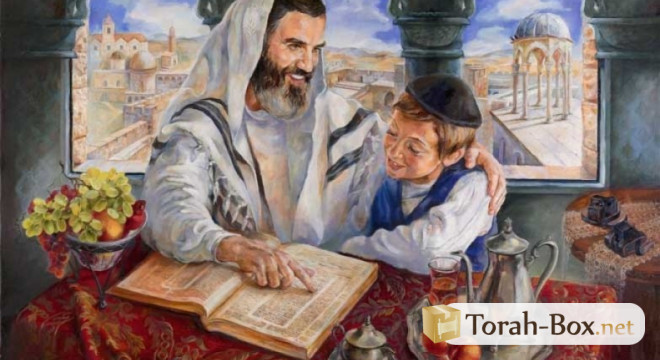
Family Purity
Educate a Child According to His Path...and With Love!
It is written in Mishlei (Ecclesiastes 22,6): חנוך לנער על פי דרכו, meaning: "Educate each child according to his way".
Two concepts are implied and juxtaposed here. Firstly, it appears in the first words of the verse חנוך לנער (educating the child), which means that it is a matter of setting up an educational framework in which authentic educational values based on the Torah, according to the parent's understanding, are transmitted to children.
Secondly, or rather, simultaneously, it is necessary to endeavor to apply the על פי דרכו (according to his way), meaning, to discover the דרך, the path of the child, his uniqueness in terms of character and personality.
Any education that does not take into account the uniqueness of the child and that would like to model the child in a preconceived and thus robotic way, is doomed to failure. Shlomo Hamelech, the wisest of men, expressed in a few words this educational approach wherein the educator is obliged to descend from his pedestal and put himself on the level of the child to truly and sincerely discover the being that is facing him. Any other way risks hurting the child and is likely to prevent the child from fulfilling his/her potential. These two educational approaches are the result of the clash of two perfectly opposite theories in education: The attitude of the educator, sure of his knowledge, holder of an authentic message which is that of an education based on Torah values; and another attitude that preaches nothing, advocates nothing, and is fully listening and open to the other.
This does not mean that we must support all the child's attitudes and tendencies, but rather we should seek to identify the child's inclinations, his intellectual potential, spiritual strengths and weaknesses, and help the child learn what he has to develop and what should be repressed.
What one may deduce through these conflicting attitudes is the concept of balance: the power of narrative tempered by the emotionally filled silence of the attentive parent; the teacher's verve counterbalanced by the educator's humble listening ear... A fragile balance that can at any moment break in one direction or another and transform the educator into a shameless dictator or the vulnerable parent into a small puppet.
The perfectly justified concern of conveying authentic Torah values must be accompanied by a fundamental respect for every child's personality. The Torah must not be used as a hammer and an anvil to inculcate the new generation ...
An educator's conviction of his position does not grant him the right not to be open with his student's based on altruism, but rather, true love of another person is the only possible vector to transmit a Torah message.
In the Ethics of our Fathers, פרקי אבות (chap.1 Mishna 12), our Sages say, "Be among the disciples of Aharon ... love people and bring them closer to the Torah." What is true of humanity in general is even more true for one's own children. Only true and genuine love of parents to their children will enable children to accept the values of the Torah. This is probably what Shlomo Hamelech meant by recommending that we educate each child "according to his way".
What is a more beautiful expression of love on the part of a parent than to accept his child as he is, without trying to model him on values that go against the child's deepest essence. This unconditional acceptance of the child will enable him to flourish, develop and improve. Abusive remarks and criticisms, do not produce a positive effect, but rather break the child and deprive him of the energy to advance and progress.
Unconditional love is the basis of educational success and the essential fuel for the "take-off" of the parent-child unit.
Torah-Box.net Account
To access the entire Torah-Box.net website, sign up for free in less than a minute.
Weekly Parsha
 Candle Lighting - New York
Candle Lighting - New York
Friday January 2nd, 2026 at 16:22 *Shabbat ends at 17:27 *
change my location
* Times given as an indication, check the times of your community









